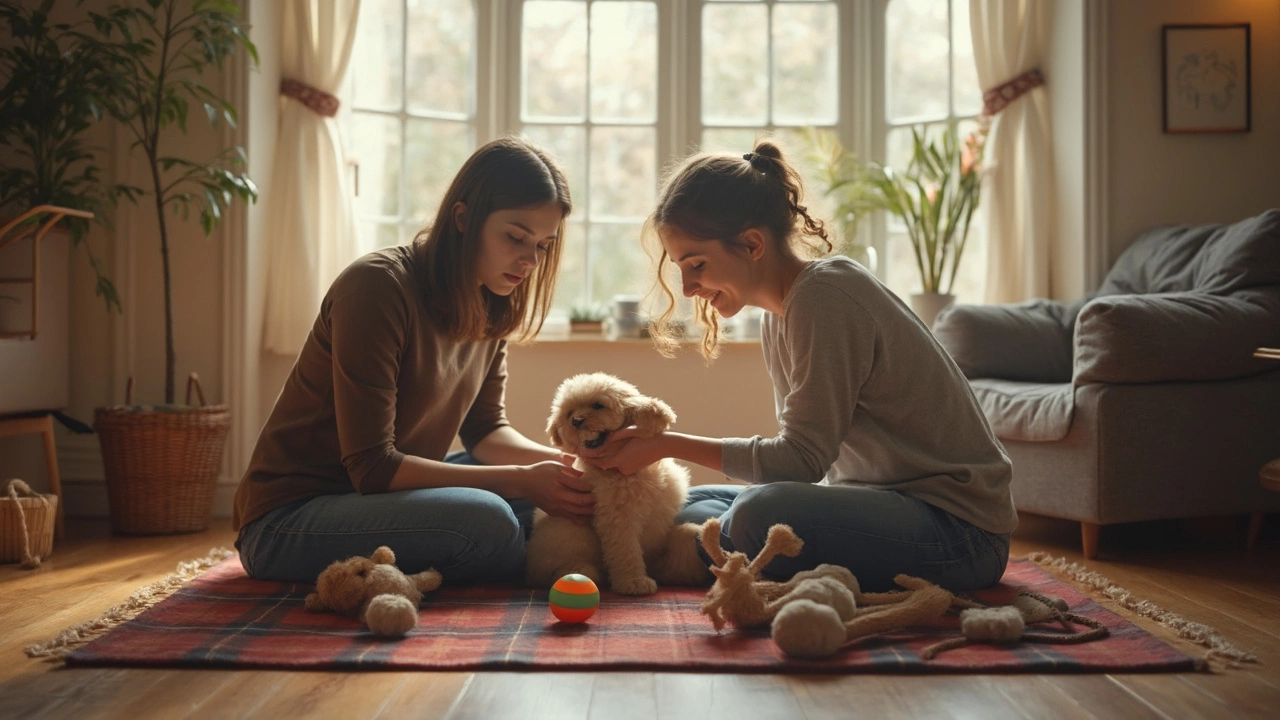Dog Adjustment Tips – Make the Change Easy for Your Pup
Got a new dog, a recent move, or a big change in routine? Dogs feel stress just like us, but you can smooth the transition with a few easy steps. Below are simple, proven tricks to help your dog settle in fast and stay happy.
Set Up a Safe Spot Right Away
When your dog first arrives, pick a quiet corner and place a bed, a favorite toy, and a water bowl. This becomes a go‑to safe zone where they can retreat if things feel overwhelming. Keep the spot consistent – avoid moving the bed around for the first few days.
Limit the number of people who interact with the dog at first. Too many strangers can raise anxiety. Let a few trusted members of the household spend calm, short sessions petting and talking softly. Over time, gradually introduce more family members and neighbors.
Stick to a Predictable Routine
Dogs thrive on routine. Feed, walk, and play at the same times each day. Even a small schedule helps them understand what to expect, which cuts down on nervous behavior. If you’re traveling or moving, try to keep feeding times and walk routes as similar as possible.
Use cues like “walk time” or “dinner” to signal the start of an activity. A consistent cue tells the dog that a predictable event is coming, which eases nervousness.
When you need to introduce a new habit – say a calming collar or a harness – do it slowly. Let the dog sniff the item, wear it for a minute, then reward with a treat. Gradually increase the time each day until the item feels normal.
Exercise and mental stimulation are key. A tired dog adjusts better than a bored one. Short training games, puzzle toys, or a quick fetch session can burn excess energy and keep the mind busy.
If your dog shows signs of stress (pacing, whining, hiding), stay calm and offer a soothing voice. A gentle massage or a calm lap can lower their heart rate. Avoid scolding – it only adds to anxiety.
For dogs that travel by plane or car, practice short trips first. Let them explore the carrier at home, then take a quick drive. Reward calm behavior with treats. This builds a positive association with travel gear.
Lastly, keep an eye on health basics. A quick check for ticks, sore paws, or itching can prevent discomfort that worsens stress. A healthy body makes a calmer mind.
With these simple steps – a safe spot, a steady routine, gradual introductions, and regular exercise – your dog will adjust faster and feel more secure. Remember, patience and consistency are your best tools. Your furry friend will soon see the new environment as just another happy part of life.

